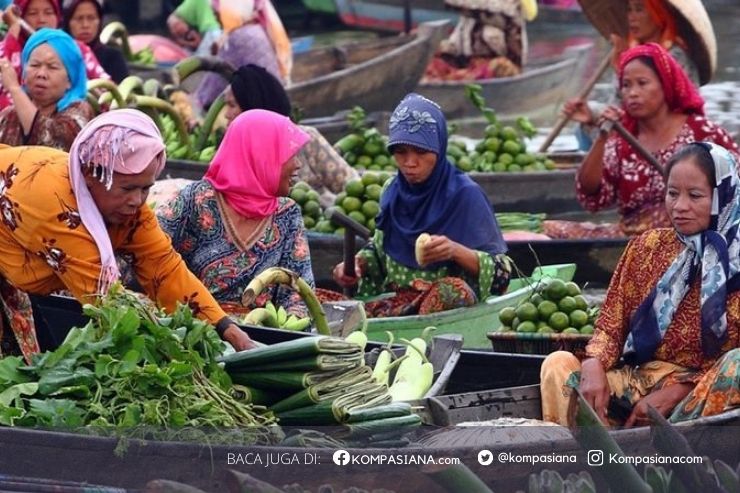Indonesia is a very big country. Indonesia have an island that has the name until 17,504 islands, it have a very wide sea and the most important is having a variety of tribes and cultures in each community. This tribe and culture certainly have their own characteristics between one region and another. This ethnic and cultural character becomes the style and model of different social structures of society. In this condition, the discussion is more emphasized on one of the tribes in Java, the Samin tribe or what we are familiarly called Saminism.
According to Harry (1969), in the book "The Samin Movement" Saminism are the descendants of Samin Surosentiko's followers who teach sedulur sikep, where they inflame the spirit of resistance against the Netherlands in other forms outside of violence. The form taken is refusing to pay taxes, refusing all the regulations made by the colonial government, this society often confused the Dutch government and the Japanese occupation because of that attitude, an attitude which until now was considered annoying by groups outside it.
Furthermore, according to King V.T. (1973), in the book Some observation of the Samin Movement of the North Java: Suggestion for the theoretical Analysis of the dynamic of rural Unrest describes that: The Samin Movement emerged as resistance to the Dutch colonial government against injustice in land tenure and management. The form of their resistance was in the form of rejection of all policies of the Dutch government, including refusing to pay taxes. This condition eventually became their struggle movement during the colonial period.
Finally, the influence of anti-government teachings and attitudes is inherent in the Samin community to form a structure or customs of its own which is somewhat different from most Javanese society in general. This is also consistent as explained by Mumfangati et al., In the book Local Wisdom in the Samin Community Environment, Blora district, Central Java.The Samin tribe is located in the Blora region, Central Java and Bojonegoro, East Java, each of which lives on the border of the two regions.
They are not large in number and live in the mountainous Kendeng region on the border of the two provinces. The Samin group prefers to be called wong sikep, because the word samin for them has a negative meaning.
Samin outsiders often consider them to be an innocent group, do not like to steal, refuse to pay taxes, and are often the subject of jokes, especially among the Bojonegoro people. The main teaching of Samin Surosentiko, whose real name is Raden Kohar, was born in the village of Ploso Kedhiren, Randublatung, Blora in 1859, and died while exiled to Sawah Lunto, Padang, 1914.
Samin's Community certainly have their own teachings in running their lives. Samin's teachings are generally divided into several things namely teachings on religion, social and economics. This time our discussion focuses on the teachings of Samin in the economic context that is practiced in people's lives.
The Samin tribe in the economic context upholds the values of harmony with nature. Their lives are full of elements of simplicity, honesty, and do not differentiate between people from one another. The Samin people refuse to trade or buy and sell between people. This condition is reasonable because according to them trading there is an element of lies in the process. For these conditions, then how do they make ends meet?
The Samin community considers that the most noble work is to be a farmer. Although now there is a reduction in agricultural land itself. The majority of them work in the fields with the main commodity is rice and corn.
This context that is in the spotlight is the attitude of the idealism of the Samin community to maintain harmony in living with nature. They farm in a way that is sufficient, which means adjusting to their needs. This fact shows that in their pursuit of happiness they always pay attention to aspects of social simplicity.
The Samin tribe holds that the earth as a form of the symbol of women, from Javanese, sing sing di mimi, dipundi-pundi. Explicitly means highly respected mother. This honor is essentially because the earth they occupy has provided food and clothing for their daily needs.










